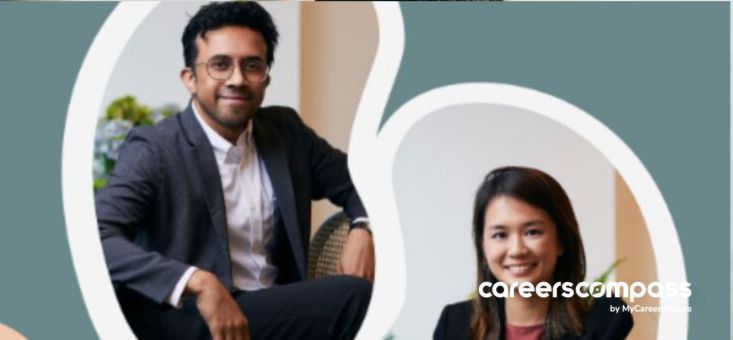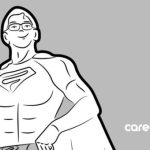There are times when we all get burnt out or just tired of our current job or career path. Perhaps we aren’t feeling as challenged or our life goals have changed.
More mundane reasons, such as wanting a better work-life balance or just a higher salary, can also be push factors to try and cast our nets for something new.
Of course, the path of change is never truly stress-free, but that shouldn’t hold you back if you’ve decided to shake things up. Learn from Farshad Ismail and Chua Huimin on how they made the switch.
Building first careers
Farshad is a senior teacher and primary creative writing curriculum lead, while Huimin is a head of operations. Both are working at Write Edge, which provides English and writing tuition classes for Primary and Secondary school students in Singapore.
Farshad started his career as a freelance writer, director and video editor, working with companies such as the National Library Board (NLB), Moove Media and Changi Airport Group (CAG) to create promotional and seasonal short-form videos for online consumption.
Some of his projects include NLB’s Jubilee Celebration and CAG’s Airport Showcase, which have garnered 100,000 views online. He also worked as a wedding videographer to broaden his skill set.
At present, he’s the Primary Creative Writing and Secondary English Curriculum Lead for Write Edge and a Senior Teacher for the Westgate Branch. He also manages a team of five that plans and develops structured and focused curriculum, workshops, and partnerships with schools.
Farshad studied Media Studies and Management at Nanyang Polytechnic before graduating from Nanyang Technological University (NTU) with a Bachelor of Arts in English Literature.
Huimin worked in a restructured hospital for almost four years before exiting the healthcare scene. Now, she’s Head of Operations at Write Edge and leads a team of centre managers and customer service associates. Her responsibilities include reviewing and improving day-to-day operations and planning ahead for future systems and processes.
She graduated with a second upper honours degree in Physiotherapy, with a National Healthcare Group scholarship. She is currently pursuing her Masters in Management at Singapore Management University (SMU), with a scholarship “Women in Business.”
How did their career switch go?
Farshad: In between my freelance projects, I did some teaching stints overseas as a volunteer. The teaching itch was born out of my first overseas expedition to Thailand, where I coached young children in English.
After finding the experience enlightening, and after enjoying and succeeding in the role, I began to look for more opportunities to teach. Lo and behold, I found the perfect opportunity to grow as a creative writing teacher. There, I found my calling and never looked back.
Huimin: I would say I stumbled into operations. I left the physiotherapy scene as I was getting quite burnt out. I then enrolled into Bible school, something that I always wanted to do, and needed a job that could accommodate those hours. I’m naturally meticulous and good with administration, so I thought of trying out the role of centre managing, which I excelled at, and my career progressed from there.
Find your next job on MyCareersFuture. We have over 100,000 job opportunities daily for you.
Was there anything when you were switching careers that surprised you?
Farshad: At the start, I found the transition rocky and turbulent since my teaching stint had started informally. My idea of teaching was more free-form, and I envisioned being given a laissez-faire approach to being an educator. Furthermore, as a freelance creative, my work was hinged on my few feedback sessions—I could rely on subjective opinions to deliver results.
Upon becoming a teacher in a system, I quickly realised the importance of working within a structure and how education and learning weren’t as simple as I thought they were. What surprised me most was the depth and complexity of education and the thought needed to put into it for it to be successful for students. Furthermore, education is a long-haul effort, a stark contrast to my previous role, and the endurance needed for teaching was another surprising factor.
Huimin: I always thought that since my degree was so specialised, it would be “useless” when I changed industries. I felt I would be at a disadvantage as I needed to start from scratch. I was surprised that many of the skills I picked up while being a physiotherapist were still applicable in my current role.
As a physiotherapist in the wards, you need to learn how to assess how critical each patient is and what rehabilitation you can proceed with. You also need to learn how to work under pressure and prioritise what rehabilitation you’d like to do for that session. Doing that relentlessly for four years trained me to be a highly analytical and focused professional who could stay composed under pressure.
What are some of the major career highlights in your new career?
Farshad: One of my most memorable career highlights is achieving the highest distinction rate for my PSLE students in my first experience leading a Primary Six class. Another highlight would be managing a 53 per cent distinction rate for my “O” Level students across my years of teaching.
In addition to teaching, I’m proud to have led core projects such as rebranding our curriculum materials, workshops, and other courses.
Huimin: I led the branding project when we rebranded to Write Edge. It was a large-scale project that involved all teams and a lot of logistics over six months. I was only one year into the company, so I felt quite accomplished when it was a success.
The other highlights would be heading the operations team, helping to grow the company, and spearheading new initiatives and projects.
What were some challenges you encountered when you switched careers, and how did you overcome them?
Farshad: First, it was learning to manage different sorts of expectations. In my freelance career, I needed to show a finished product to a client to determine my next step or whether I was veering off in the wrong direction. But in my new career, I had to learn to manage expectations from multiple stakeholders and for the long haul.
I also had to learn how to work in a structure. As a freelancer in the media industry, I found the approach to work much more accessible and needed more individual brilliance. Working as an educator, I realised there was more collaboration than initially expected, and one of the main challenges was learning to be more efficient within a system, which has tremendous benefits. This also meant letting go of certain things not within my control and being more relentless with my output.
Huimin: One of the challenges I encountered was wondering if I did the right thing by quitting physiotherapy. This doubt lingered for a couple of years. Physiotherapy was a meaningful profession that I gave eight years of my life to and is an iron rice bowl for someone like me, who likes stability. The breakthrough came when I realised that I’m a better operations professional than a physiotherapist on any given day. So, I feel like I belong where I am now.
Another challenge was feeling like I wasn’t good enough because of my “specialised” degree in physiotherapy. I felt like I didn’t know much about the business world, Excel formulas, or the usual things that undergraduates learn at school. To overcome this, I decided to pursue further studies.
What are some of the necessary skills one would need to possess to switch careers?
Farshad: Endurance, and with that, a skill to compartmentalise your life. We have to expect a higher-than-usual number of curveballs with a new career and, inevitably, a new environment with new challenges. Things won’t go as expected, and we must be ready to deal with the fallout and the stress. Compartmentalising will help you with your confidence and your life and allow you to build patience, as well. Learning to compartmentalise also helps deal with failure – and there’s lots of that in a new environment.
People skills are also invaluable. Regardless of our nature, we can always learn better ways to connect and work with people. Having the right support system and forging enriching relationships will definitely help ease the transition into a new environment.
Last but not least, learn to ask questions and be comfortable with asking them, especially ones that go beyond your scope of understanding. This helps you build a better foundation and understanding of your new environment and can help you fast-track your career decisions and choices.
Huimin: Resilience and a good attitude. I interview people from time to time, and honestly, the educational background doesn’t matter. I believe that if you possess these, you’ll not only thrive anywhere but be a breath of fresh air to your prospective employer.
This article is contributed by gradsingapore.















